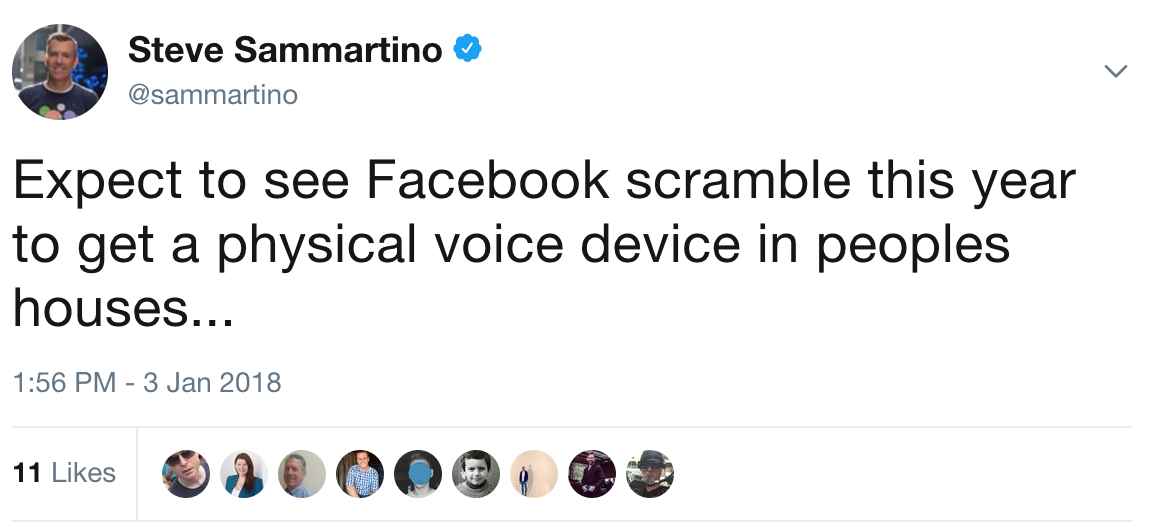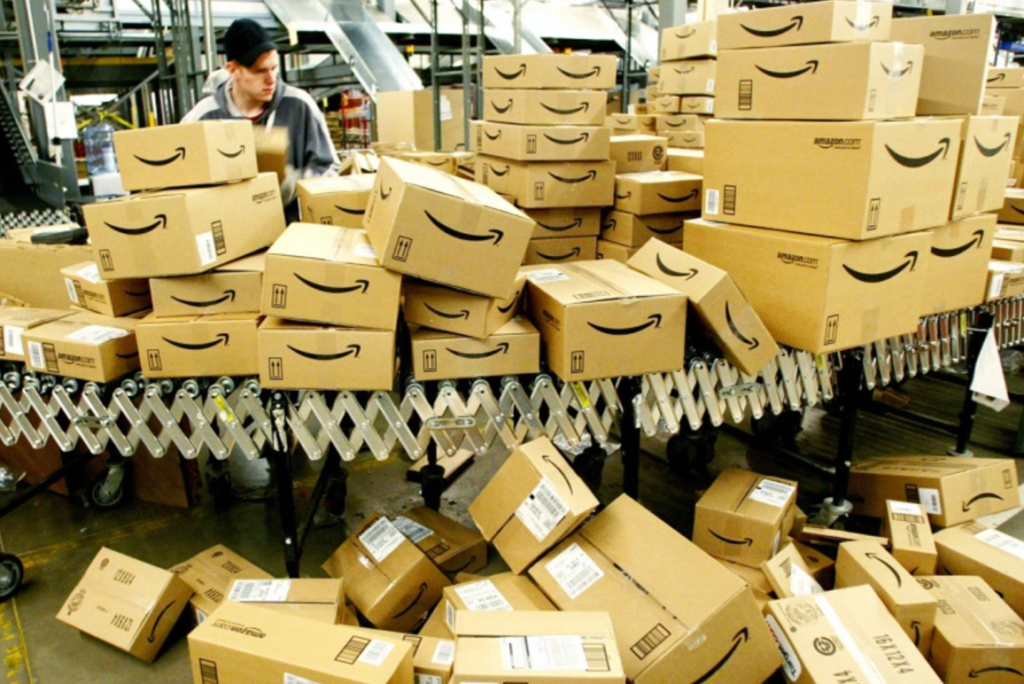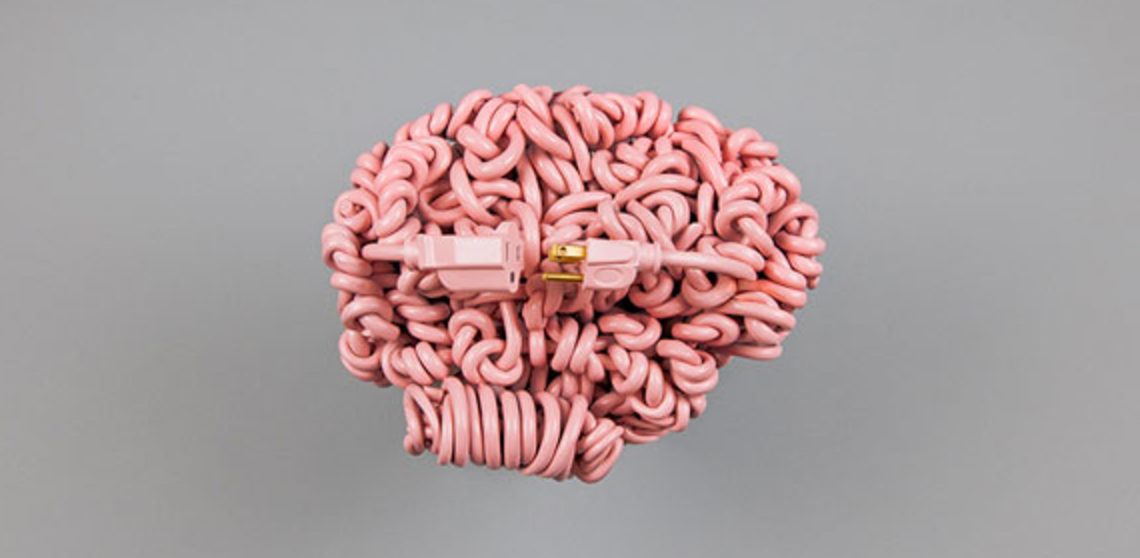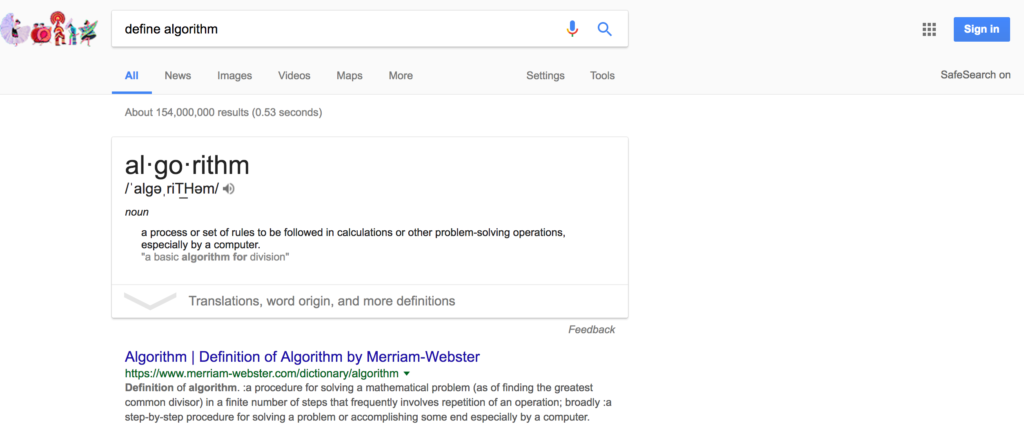I recently tweeted that I expect to see Facebook scramble and launch a physical device to capture verbal interactions in the home, as per Google, Apple and Amazon:

And just today rumours started surfacing at CES one is on its way called Facebook Portal. I promise I had no insider knowledge!
The tweet generated quite a lot of discussion about the why, why not, how and benefits of doing so. So here’s some deeper thought on the topic. I actually had a good chat with Paul and Nick about it, which made me think about how this could actually work… it went something like this:
Most people pointed out that Facebook already have ‘messenger’ which listens, and can talk, and that if they have this, and are on pretty much everyone’s phone, why would they need an extra physical device with voice? My thinking is that their core competitors (Amazon, Google and Apple) now have an always on, always listening device we can speak to and essentially ‘order from’ and command to do real physical things from us. My view is that these devices will usher in a new post smart phone (well, in addition to at least) battle for the home. It’s part of the shift to the era of ambient computing. Ambient computing to me, is much like we see in pretty much every future focused science fiction show – we command our technology via voice, often without a screen and it reacts to our needs. In which case it can pervade the entire home (kitchen, lounge room, bedroom, bathroom) and become a node for consumption and problem solving, not just data aggregation and visual suggestion. Of course, Mark Zuckerberg doesn’t mind being late, buying and if needed copying his competition.
On the surface we can see why a voice device makes sense for Amazon, Apple and Amazon, and not so much a social network. here’s where the potential pivot and new revenue stream could come in for Facebook. While FB provides connection to advertises based on very tight data based targeting, the thing advertisers want more than clicks, is orders. Imagine if Facebook could streamline the advertising process and convert it into ordering process of direct selling to their 2 billion residents? It would of course require some back end infrastructure development by FB, but it would be possible. Potentially it could be an addition to their advertising platform – click to ship?

The way I imagine it could play out wouldn’t be much different to the way Alexa works for Amazon, expect that the orders would be direct to the vendor on FB (currently an advertiser), and instead of the product being delivered via a 3rd party distributor (such as Amazon) – FB could send their vendors orders to be fulfilled via the vendors logistics. Which, if they pulled it off could be a good way to fight back against Amazon without having to build any of the physical infrastructure. This could be an incredibly a quick way to compete with the Amazon Marketplace.
But here’s the kicker, imagine if Facebook developed some kind of API where vendors could plug in their stock on hand and logistics – then they could start turning attention into actual orders and know who buys what and understand the flow of goods and services deeply.
I’m certain their bet with Oculus is too early, while I truly believe that voice devices are the next key battleground. It’s gonna be interesting to see who this one plays out.
If you want a life independent of the evil people like MZ – check out my new book – The Lessons School Forgot.

 A global economy ends up with many pieces of global infrastructure. Communications system, social networks, sans-nation-state currencies, political forums, international transport to name a few. We are currently in the middle of the transition to a global language, the written version at least. Something seemingly childish is about to entirely transform the written word: emojis.
A global economy ends up with many pieces of global infrastructure. Communications system, social networks, sans-nation-state currencies, political forums, international transport to name a few. We are currently in the middle of the transition to a global language, the written version at least. Something seemingly childish is about to entirely transform the written word: emojis.






